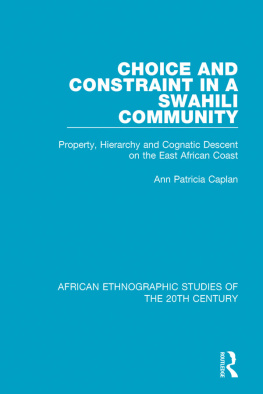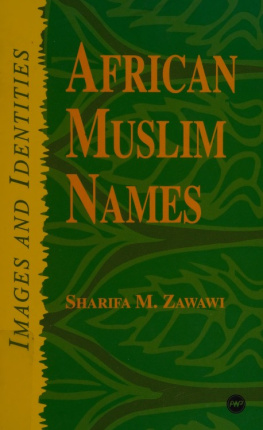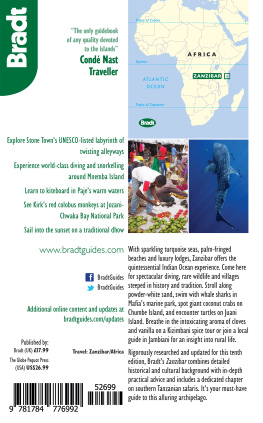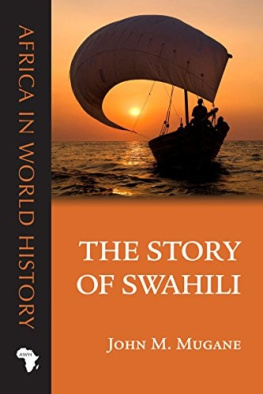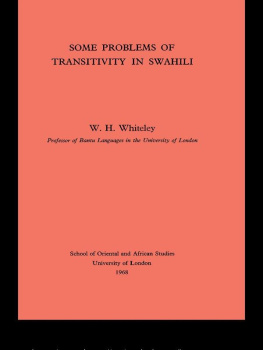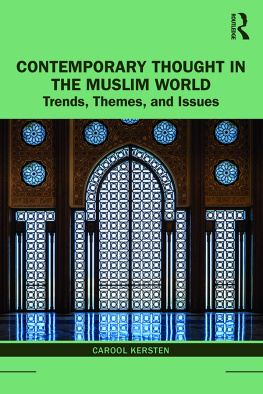Contemporary Issues in Swahili Ethnography
The term Swahili describes the Muslim peoples of the East African coast, speakers of Kiswahili or closely related languages, who have historically filled roles as middlemen and merchants, the cosmopolitan products of a trading economy between Africa and the Indian Ocean world.
This collection brings together anthropologists working on the greater Swahili world and the issues it confronts, dealing with societies from southern Somalia, northern Mozambique and the Comoro Islands, to Zanzibar and Mafia. The authors discuss a range of contemporary issues such as the shifting roles of Islam on the mainland coast; consumerism, conservation, memory and belonging in Zanzibar; how a Muslim society deals with HIV/AIDS; social change, development and political strategies in the Comoros; and Swahili women in London. The diversity of these themes reflects the diversity of the Swahili world itself: despite a cohesive cultural identity built upon shared practices, religious beliefs and language, the challenges facing Swahili people are multiple and complex.
This book comprises articles originally published in the Journal of Eastern African Studies along with some new chapters.
Iain Walker is Research Officer in the Centre for Interdisciplinary Area Studies, Martin Luther University, and Associate at the Max Planck Institute for Social Anthropology in Halle, Germany. He has worked on a variety of themes in the Comoro Islands as well as on migration, disapora, identity and belonging among Comorians and Hadramis in the Western Indian Ocean.
Contemporary Issues in Swahili Ethnography
The term Swahili describes the Muslim peoples of the East African coast, speakers of Kiswahili or closely related languages, who have historically filled roles as middlemen and merchants, the cosmopolitan products of a trading economy between Africa and the Indian Ocean world.
This collection brings together anthropologists working on the greater Swahili world and the issues it confronts, dealing with societies from southern Somalia, northern Mozambique and the Comoro Islands, to Zanzibar and Mafia. The authors discuss a range of contemporary issues such as the shifting roles of Islam on the mainland coast; consumerism, conservation, memory and belonging in Zanzibar; how a Muslim society deals with HIV/AIDS; social change, development and political strategies in the Comoros; and Swahili women in London. The diversity of these themes reflects the diversity of the Swahili world itself: despite a cohesive cultural identity built upon shared practices, religious beliefs and language, the challenges facing Swahili people are multiple and complex.
This book comprises articles originally published in the Journal of Eastern African Studies along with some new chapters.
Iain Walker is Research Officer in the Centre for Interdisciplinary Area Studies, Martin Luther University, and Associate at the Max Planck Institute for Social Anthropology in Halle, Germany. He has worked on a variety of themes in the Comoro Islands as well as on migration, disapora, identity and belonging among Comorians and Hadramis in the Western Indian Ocean.
First published 2017
by Routledge
2 Park Square, Milton Park, Abingdon, Oxon, OX14 4RN, UK
and by Routledge
711 Third Avenue, New York, NY 10017, USA
Routledge is an imprint of the Taylor & Francis Group, an informa business
2017 Taylor & Francis
All rights reserved. No part of this book may be reprinted or reproduced or utilised in any form or by any electronic, mechanical, or other means, now known or hereafter invented, including photocopying and recording, or in any information storage or retrieval system, without permission in writing from the publishers.
Trademark notice: Product or corporate names may be trademarks or registered trademarks, and are used only for identification and explanation without intent to infringe.
British Library Cataloguing in Publication Data
A catalogue record for this book is available from the British Library
ISBN 13: 978-1-138-24101-5
Typeset in Times New Roman
by RefineCatch Limited, Bungay, Suffolk
Publishers Note
The publisher accepts responsibility for any inconsistencies that may have arisen during the conversion of this book from journal articles to book chapters, namely the possible inclusion of journal terminology.
Disclaimer
Every effort has been made to contact copyright holders for their permission to reprint material in this book. The publishers would be grateful to hear from any copyright holder who is not here acknowledged and will undertake to rectify any errors or omissions in future editions of this book.
Contents
Citation Information
The following chapters were originally published in the Journal of Eastern African Studies, volume 6, issue 4 (2012). When citing this material, please use the original page numbering for each article, as follows:
Chapter 4
One hundred years in Brava: The migration of the Umar B Umar from Hadhramaut to East Africa and back, c. 18901990
Alessandra Vianello
Journal of Eastern African Studies, volume 6, issue 4 (November 2012), pp. 655671
Chapter 5
Reinterpreting revolutionary Zanzibar in the media today: The case of Dira newspaper
Marie-Aude Four
Journal of Eastern African Studies, volume 6, issue 4 (November 2012), pp. 672689
Chapter 6
Medicines of hope? The tough decision for anti-retroviral use for HIV in Zanzibar, Tanzania
Nadine Beckmann
Journal of Eastern African Studies, volume 6, issue 4 (November 2012), pp. 690708
Chapter 7
Chasing imaginary leopards: science, witchcraft and the politics of conservation in Zanzibar
Martin Walsh and Helle Goldman
Journal of Eastern African Studies, volume 6, issue 4 (November 2012), pp. 727746
Chapter 8
Constructing translocal socioscapes: consumerism, aesthetics, and visuality in Zanzibar Town
Paola Ivanov
Journal of Eastern African Studies, volume 6, issue 4 (November 2012), pp. 631654
Chapter 11
Is social capital fungible? The rise and fall of the Sanduk microcredit project in Ngazidja
Iain Walker
Journal of Eastern African Studies, volume 6, issue 4 (November 2012), pp. 709726
The following chapters were originally published in the Journal of Eastern African Studies, volume 7, issue 4 (2013). When citing this material, please use the original page numbering for each article, as follows:
Chapter 2
Transmission of Muslim practices and womens agency in Ibo Island and Pemba (Mozambique)
Francesca Declich
Journal of Eastern African Studies, volume 7, issue 4 (November 2013), pp. 588606
Chapter 10
Beyond Great Marriage: collective involvement, personal achievement and social change in Ngazidja (Comoros)
Sophie Blanchy
Journal of Eastern African Studies, volume 7, issue 4 (November 2013), pp. 569587
The following chapter was originally published in the Journal of Eastern African Studies, volume 9, issue 2 (2015). When citing this material, please use the original page numbering for each article, as follows:


